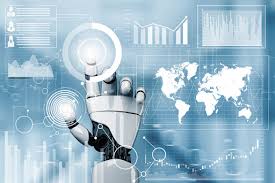Source:
This year marks 23 years since the establishment of the Electoral Commission of SA (IEC). Having served as a commissioner for the IEC for almost 14 years, and as vice-chairperson from 2011 until late 2018, I witnessed the growth of the institution with the growth of electoral democracy in SA.
Over the years the IEC’s systems have made it easy for all citizens to exercise their right to vote. Yet SA’s democratic gains are at a risk of being undermined by high levels of unemployment, poverty and inequality, and it should be asked whether the electoral landscape is ready for the role of big data and machine learning.
As contestation in the political space becomes more intense — healthy for any maturing democracy that wishes to become stronger — more questions will be asked of, and demands placed on, electoral processes. Events involving past elections, in particular the 2019 national and provincial polls, exposed some issues everyone should be concerned about. This happened while the world was beginning to experience the influence of big data and machine learning in the management of democracy, including electoral processes.
It has been suggested that the IEC should consider using facial recognition technology in the upcoming elections. Facial recognition is one technological intervention made possible by big data and machine learning. But other technologies are equally effective and cost effective.
Big data and machine learning have affected the way the world does business. Sooner or later those who continue to do business as if they are not affected by big data and machine learning will have to adapt or die. Democratic processes will naturally be affected by these processes. Big data and machine learning cannot continue to be conducted in a way that gives an impression that there are attempts to avoid attention, especially regarding democratic processes.
Institutions responsible for election processes and citizens need to develop a process to educate the populace about big data and machine learning to prepare for the unavoidable adaptation.
Electoral democracy
Big data and machine learning have created interesting possibilities in the management of electoral democracy. New technologies using big data and machine learning are being introduced to facilitate the management of elections. These new technologies will minimise or eliminate weaknesses in the system. The nullification of the results of elections in Malawi in 2019, and in Kenya in 2017, could have been avoided by deploying technology associated with machine learning.
These technologies contribute to the way political parties navigate political spaces. UK-based company Cambridge Analytica used big data to influence the outcome of the 2016 US presidential election and the Brexit referendum. There is also a belief that the uprisings in Latin America, particularly in Bolivia and Venezuela, are not spontaneous reaction of citizens but the outcome of a well-calculated strategy that relies on big data and machine learning.
The effect of big data and machine learning on democratic processes has raised questions about ensuring elections are free and fair. We need to have a strategic conversation with thought leaders on democratic processes, big data and machine learning. We need to discuss openly and transparently the role of big data and machine learning in the management of elections, as well as how it is being used by political parties, the business community, non-governmental organisations and elections observers.
Big data and machine learning are game-changers, but as we celebrate it as a great advance of the fourth industrial revolution (4IR) we must never lose sight of ethics. At its launch in 2019 the Institute of Election Management Services in Africa (Iemsa), using coding, developed a democracy digital game targeting grade 3 pupils. This game has since been expanded to cover the whole curriculum of grade 3 to 7 pupils.
Iemsa’s focus is on creating a conducive, credible and appropriate space to include thought leaders globally in a conversation on big data and machine learning in SA and Africa. This is essential to ensure we are not left behind, which might undermine the progress we have made thus far in enriching and deepening our democracy.
